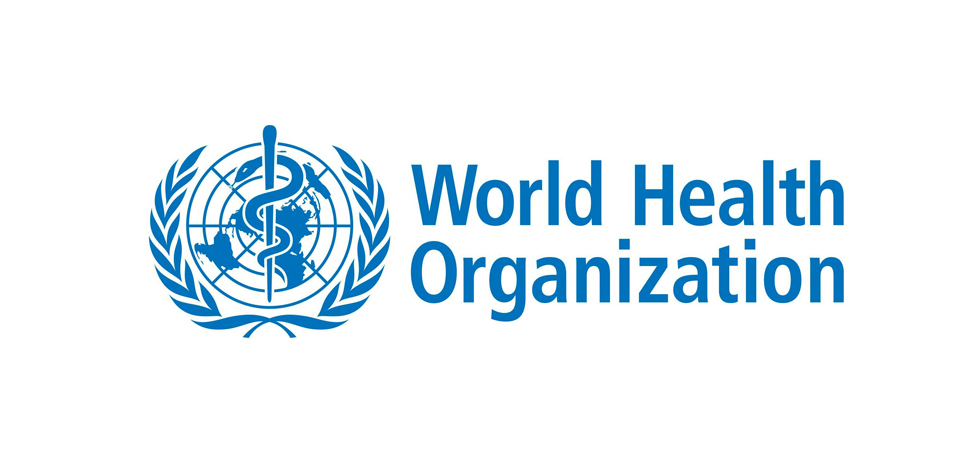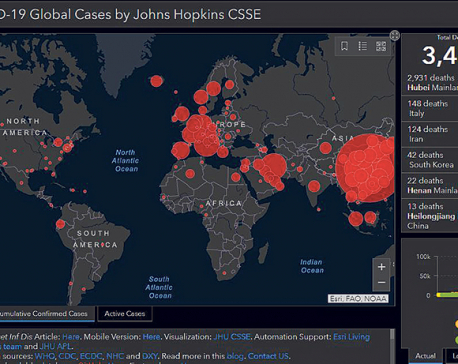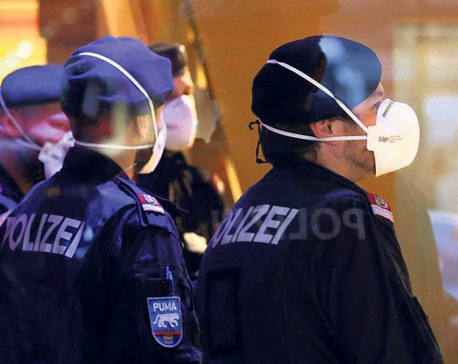
OR
WHO emphasizes on agile response capacities, as South-East Asia Region confirms more COVID-19 cases
Published On: March 4, 2020 07:30 PM NPT By: Republica | @RepublicaNepal

KATHMANDU, March 4: With India, Indonesia and Thailand confirming new cases of COVID-19, World Health Organization on Wednesday asked countries in its South-East Asia Region to strengthen preparedness for all possible scenarios and ensure early containment measures.
“Top priority of countries should be to be ready to roll out speedy response to the first case, first cluster, and first evidences of community transmission. Early containment measures can help countries stop transmission,” Dr Poonam Khetrapal Singh, Regional Director, WHO South-East Asia Region said in a press statement.
Five of the 11 countries in the Region have confirmed COVID-19 cases – Thailand 43, India 28, Indonesia 2 and Sri Lanka and Nepal one each.
“The risk of the new coronavirus is very high across the world and in WHO South-East Asia Region. More cases can be expected. Rapidly identifying these cases, isolating them and following their contacts are important initiatives to help limit person to person transmission. The speed of our response is critical, which is only possible if we are prepared,” the Regional Director said.
Dr Khetrapal Singh said there are three priorities for country readiness – protecting health workers, engaging with communities and empowering them with timely and accurate information to enable them take protective measures, specially those at highest risk; and doing our best to contain epidemics in the most vulnerable countries.
The virus can cause mild, flu-like symptoms as well as more severe disease. Patients have a range of symptoms such as fever, cough, and shortness of breath. Based on current data, globally 81% of cases seem to have mild disease, about 14% appear to progress to severe disease, and some 5% are critical, the press statement said.
People can protect themselves and prevent spread of the virus by practicing hand hygiene, covering their cough and sneeze, maintaining distance from others if they are sick and from those who are sick, she said.
Infection prevention and control is of critical importance in health facilities for COVID-19.
Outlining preparedness and response measures and capacities in the WHO South-East Asia Region, Dr Singh said adding that the WHO is assisting countries in preparedness and response planning, in coordination with other partner organization; as per updated global guidelines.
"All member countries have rolled out a series of measures to prevent the disease and protect their nationals," she further said.
Nine of the 11 countries now have capacities to test for COVID-19. WHO is supporting countries with supplies for laboratories. For countries unable to test, WHO is assisting in shipping of their samples to global referral laboratories, three of them in the Region - two in Thailand and one in India.
Nearly 300 000 pieces of personal protective equipment comprising of caps, goggles, surgical masks, gloves gowns etc, have been supplied to member countries, and nearly 200 000 more pieces are being procured.
WHO is conducting web trainings for countries in critical areas of preparedness and response such as surveillance, testing in laboratories, clinical management of cases, infection prevention and control, communicating the disease to the community etc, read the statement.
Globally, WHO is constantly analyzing data, as more information comes in, and is working closely with global experts to better understand transmission, risk factors, and source of the infection, the statement added.
On 28 February, WHO had raised the risk assessment for the COVID-19 outbreak internationally from “high” to “very high” nearly a month after the novel coronavirus was declared a public health emergency of international concern – WHO’s highest level alarm.
You May Like This

WHO and UNICEF join hands through COVID-19 Solidarity Response Fund
KATHMANDU, April 5: The World Health Organization (WHO) and UNICEF on Friday announced an agreement to work together on COVID-19... Read More...

Inside Nepal’s preparations against possible COVID-19 outbreak
KATHMANDU, March 7: During a daily press briefing on Feb 28, the director general of the World Health Organization (WHO),... Read More...

Together we must fight
The approach of the WHO South-East Asia Region to health security is guided by a simple yet powerful logic: When... Read More...







Just In
- NRB to provide collateral-free loans to foreign employment seekers
- NEB to publish Grade 12 results next week
- Body handover begins; Relatives remain dissatisfied with insurance, compensation amount
- NC defers its plan to join Koshi govt
- NRB to review microfinance loan interest rate
- 134 dead in floods and landslides since onset of monsoon this year
- Mahakali Irrigation Project sees only 22 percent physical progress in 18 years
- Singapore now holds world's most powerful passport; Nepal stays at 98th











Leave A Comment